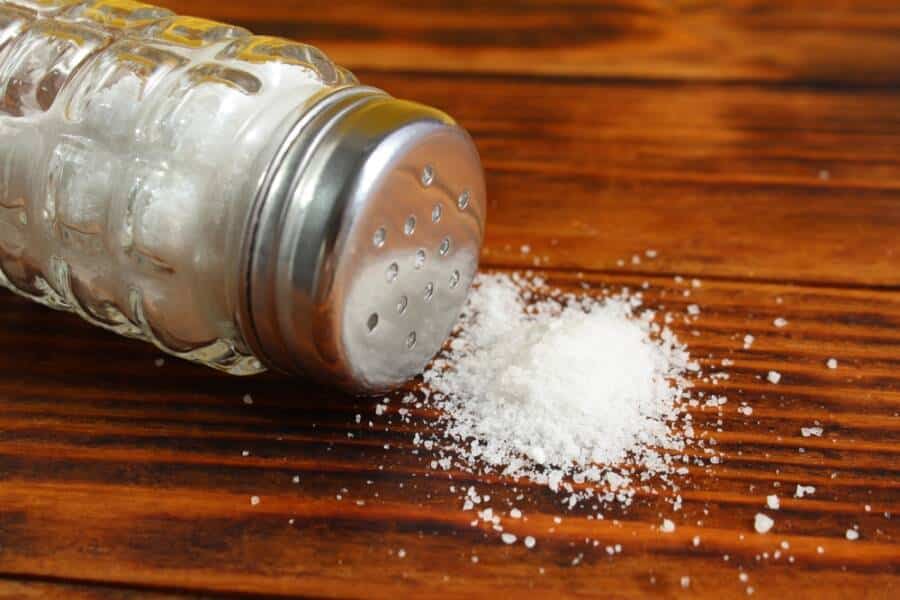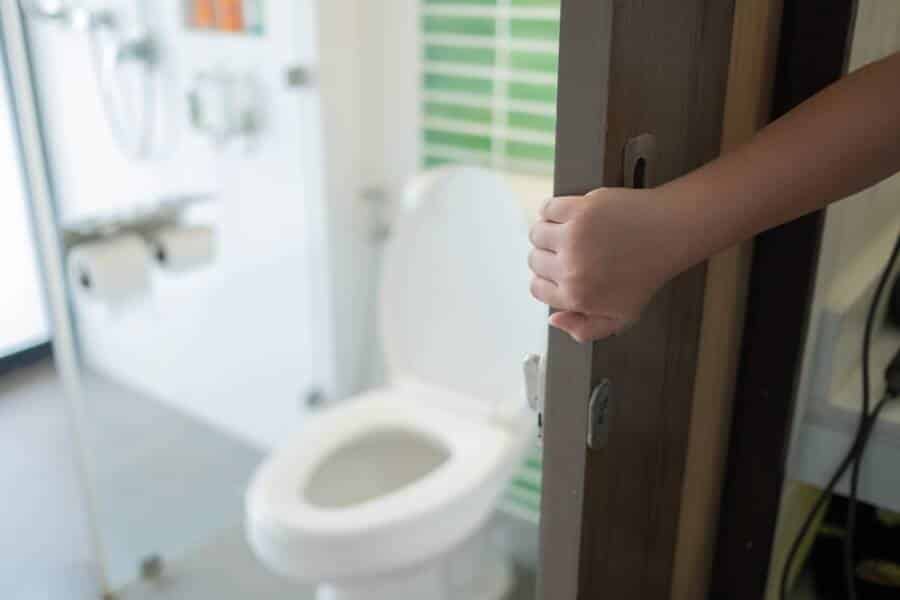If you see these signs, you may be eating too much salt!
None of us likes to think that we are eating too much salt in our foods, but it can happen that we do not realize that we are making this excess.
A sign that this is happening could be that you end up adding salt to everything you eat, from your breakfast eggs to the steaks and mashed potatoes for dinners, and even to that occasional cocktail rim.
However, sometimes this excess in sodium intake may not come as easily as feeling the need to add salt to everything you consume, since it is surprisingly easy to be eating and consuming too much salt even if we do not intend it.
If you happen to eat out pretty often, rely on a lot of pre-packed or canned foods (like canned beans and veggies, soup, and even frozen meals) or even drink a lot of sports drinks or electrolyte beverages.
You may be adding to your sodium intake silently without realizing it.
That’s when the body starts counting! Keep on reading to discover how you are accidentally eating too much and how your body keeps counting!
Am I eating too much salt?
People end up consuming their daily recommended salt intake from one meal without even realizing it and without ever touching a salt shaker, whether through eating packaged foods or takeout!
According to the United States Food and Drug Administration (FDA), most people consume about 3,400 mg of sodium a day, which can end up being too much for your body despite it needing sodium to function properly.
Too much salt can lead to high blood pressure (hypertension) and an increased risk of developing heart disease.
A good way to consume only how much salt you need is to keep your intake at a maximum or under 2,300 mg daily, according to the 2020–2025 Dietary Guidelines for Americans.
The American Heart Association’s recommendation is to cap your salt intake at 1,500 mg and not go over it.
Despite this, it is hard for all of us to know how much salt we are eating, and it would be hard to start tracking all your bites and salt shakes.
If you want to see how your body keeps score, make sure you pay attention to this common sign: your salt intake needs to be capped!

1. Frequent headaches
If you suffer from frequent headaches, this may be an indication that you are eating too much salt.
If you have excess sodium in your system, it is going to mess with the fluid ratio in your body, which can lead to dehydration. The salt will leech off the body’s water supply, and this can lead to dehydration headaches that will ruin your mood and your day.
Experts on the matter explain that when the body is losing too much water due to sodium, the brain will contract, which in turn will also cause nausea.
Too much salt is also associated with other symptoms that can accompany a headache, like dizziness, nausea, and even vomiting in extreme cases. This can also lead to making the pounding headache even worse!
If you feel like the reason for your headache is too much salt, you should make sure to drink plenty of water in order to flush it out of your system and clear your headache.
2. Craving salty snacks and foods
Have you found yourself daydreaming about salty fries or a bag of chips?
This is a direct result of eating a lot of salty foods; at some point, your body will get used to it and keep on asking for more and more of these types of foods.
Not only will your body get used to the salt intake, but your taste buds will get used to the taste and flavor, and in order to reach the same level of satisfaction, you will need to be eating more of the same flavor.
In the end, you will reach a point where this becomes a cycle that will be hard to break.
So you will need to slowly cut back on all the salty foods or modify the dishes you order or make in order to make sure they will not end up overconsuming too much.
A great way to make sure you season your food well but not overdo it with salt is to go get no-salt-added seasonings at home and, when you are out, ask the waiter to make sure the dishes are not overly salty.
Losing salt when you are used to having a lot of it in your dishes will end up losing flavor, but you can always substitute that with spices and herbs.

3. Being super thirsty
Has it become more frequent that you find that you have a dry mouth and need a drink to relieve it? This can be a sign that you are eating too much salt.
Sodium is the mineral that aids your body in retaining water, and it can also pull on your stored fluids when you are getting the normal amount.
When you overdo the salt, you end up causing a fluid deficit in your system, which will make your body crave water and increase your thirst.
When you have too much salt, your body will want to balance it with more fluid in order to maintain equilibrium.
The fix is easy since all you need is water, but in the end, you should make sure that you are not just getting normal thirsty and that you need to make any adjustments to the amount of salty foods in your diet.
Check to see if anything you have introduced to your diet recently is not overly salty and potentially at fault for this sensation.
One thing to keep in mind is that excessive thirst is also a sign of diabetes, so if you have cut down on your salt but the thirst persists, you should make sure to make an appointment with your primary care physician to see what this is all about.
4. Puffy and swollen
As we mentioned earlier, salt will make your body retain water, and as a result, your body will start to swell.
Water will be stored in all the body’s tissues, which can lead to additional puffiness and bloating in addition to swelling. If you have observed puffiness in the face more so than usual and that you feel heavy, bloated, or uncomfortable in your clothes, it may be the extra salt.
Some people have reported seeing themselves looking and feeling tired, along with puffy faces, bigger under-eye circles, and swollen ankles and fingers.
Your rings not fitting anymore can also be a sign.
Athletes have also mentioned that they have observed how too much sodium in their diet affects their performance, more often than not slowing them down.
So while it is good to replenish your electrolytes and sodium after a workout or when you sweat excessively, you should make sure you do not overdo it afterwards and that you go into that situation without having eaten too much salt.

5. Frequent bathroom breaks
If it’s starting to feel like you are dating the toilet, it could also be a sodium issue.
Salt impacts the body in a lot of ways, as we have discovered, but since it makes you thirsty, you will be drinking more and more water, and it does have to leave your system too. So this translates to frequent bathroom breaks.
If you’re drinking a lot during the day and going to the bathroom way more than usual, it could be the added salt to your diet.
Not to mention, sodium will also impact your kidneys (which filter all the toxins out of your body) and make them less effective.
Prolonged consumption of extra sodium can lead to kidney failure. So be careful with the salt!
This does not mean that you should stop all sodium consumption altogether if you are worried about too much salt. After all, salt is an integral part of cooking and one of the biggest taste components. If you want to see how salt (in appropriate quantities) can make your cooking better, we recommend this book from Amazon!
There are lots of things that can give you side effects, and they can even come from some of the most common foods out there. If you are curious to see what these symptoms are and which foods can give you them, check out this article: 8 Bizarre Side Effects of Common Foods.






One Response
I have this problem being filled with water. I have stopped processed foods.